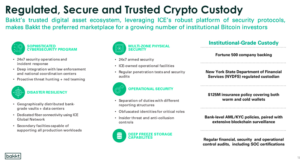What Is Custody of Digital Assets?
Custody of Digital Assets
If you’re interested in cryptocurrency, you need to know what is custody of digital assets. The industry is booming, and a custody provider can help you protect your digital assets. The industry is regulated, which means it’s important for investors to find a reputable provider and avoid fraud. Many financial firms are launching custody services.
However, the regulatory environment surrounding digital assets is still evolving. New laws and initiatives are being introduced to support responsible growth. Many legal bodies are also looking to ensure that digital asset custodians have adequate risk controls. The goal is to give investors peace of mind that their assets are secure. In the U.S., the OCC is the leading regulatory agency.
Crypto firms have traditionally relied on a combination of cold and hot wallets to protect their assets. The vast majority of funds are held in cold storage, and only a tiny percentage are stored in hot wallets. This helps ensure security and liquidity. Cryptocurrency firms also use multi-party computation, which allows multiple parties to compute at the same time.
A digital asset custodian is a trusted third-party that manages the keys to a digital asset. In addition to secure storage, custodians provide an easy way to purchase and sell digital assets. These custodians store both public and private cryptographic keys and ensure that all transactions are secure.

What Is Custody of Digital Assets?
Digital asset custody is similar to traditional financial assets, but differs in several ways. It is crucial to keep digital assets safe and secure to protect them against theft or loss. A digital asset custodian holds the owner’s cryptographic key, which proves ownership and allows transfer between owners. Keeping this private key private is essential because if it is ever lost or stolen, the digital asset may be completely unrecoverable.
The industry is facing many challenges, however. For example, security tokens are a new phenomenon that may lead to an increased number of decentralized custody services. Traditionally, custody of digital assets is the responsibility of financial institutions. Only fifteen banks have public interest in developing digital asset custody services. Nonetheless, if these institutions don’t act now, they may be able to be disrupted.
Custodians must be regulated. For example, a broker-dealer holding a digital asset security for a customer must comply with the Securities Exchange Act. The SEC has asked for public comment on the proposed change to this rule. It is important to make sure your custodian meets industry standards.
Traditional financial institutions can enter the digital asset market by building an end-to-end digital asset custody model or by acquiring an existing digital asset custody provider. They can also partner with trusted service providers to develop a digital asset strategy. As the industry matures, the benefits and challenges associated with digital asset custody are only becoming more clear.